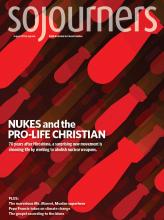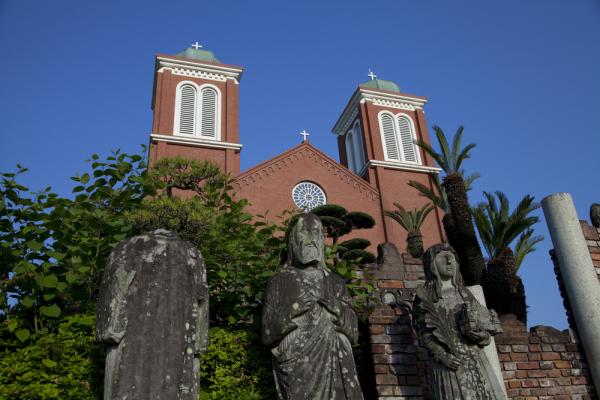OVER THE LAST 14 months, I visited Nagasaki six times to prepare for and then participate in the Christian Forum for Reconciliation in Northeast Asia, along with 60 Christian leaders from Japan, the U.S., China, and South and North Korea.
Following the forum, I attended the International Symposium for Peacemaking in Northeast Asia, held at the Nagasaki Atomic Bomb Museum. These events gave me much opportunity to think about nuclear weapons and peacemaking, alone and together with a peaceable community of believers.
The devastating power unleashed on Nagasaki and Hiroshima 70 years ago shocked the human community. I have friends whose families suffered when atomic bombs fell on those two Japanese cities. But Japan was not simply a victim. The Pacific War started with the bombing of Pearl Harbor. And if the Japanese military had then had an atomic bomb, I am quite certain they would have used it.
Today, many are working to abolish nuclear weapons as inhumane and unacceptable. I am convinced that nuclear weapons cannot be justified. But the question “Why should we abolish nuclear weapons?” leads to additional questions: How do we think about wars, about killing and violence, in general? While seeking to abolish nuclear weapons, should we keep on making, selling, and using other kinds of weapons?
Read the Full Article

